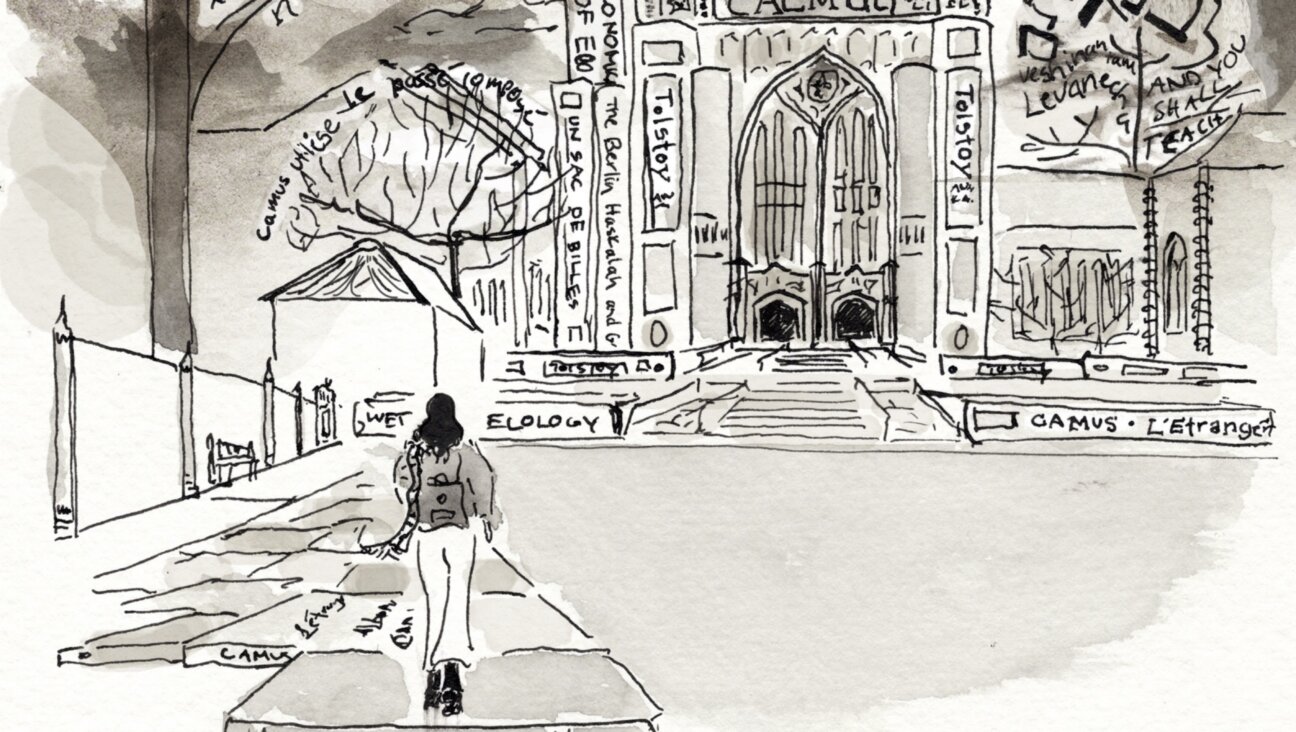Learning To Become Fluent in ‘Faith-Speak’
For American Jews, most of whom fall in the Democratic column; the re-election of President Bush — aided as it was by the religious right — has heightened the concern that we are fast becoming guests in an increasingly Christian nation.
That might indeed be the case, but I nevertheless remain optimistic about our communal ability to influence the national agenda. In order to do so, however, we need to redefine our modus vivendi. As the Torah tells us, those who lead are responsible for the character of their society.
It is essential that we, as a community, develop a list of priorities on those issues that would threaten or negate vital Jewish principles, principles that we hold critical to our Jewish identity. Perhaps more importantly, we need to relearn how to engage with a body politic that, in some ways, operates much differently than that of a generation ago.
If faith is going to be the impetus for the development of national policies and programs — as increasingly appears to be the case, now that the Republican Party is in firm control of the White House and Congress — we need to first be informed about our own faith. We need to better understand our teachings, our ethics and how they have contributed to our citizenship in this country.
To be sure, many Jews are familiar with our values and ethics. But we have not been successful enough in articulating the tradition on which they are based. We must do a better job in making clear that our efforts to create a just society are founded upon a long and rich heritage.
It is important to remember that people of faith usually respect a difference in beliefs, if those with whom they disagree are knowledgeable about faith principles and can knowledgeably link them to the issues that concern us. Our sages, our Torah, our teachings have given us rules for social behavior: responsibility for others as well as for family; concern for elders; care of the widow and orphan translated to today’s challenges; rules that enable people to live with dignity and self-respect.
We need to become more fluent in “faith-speak,” a language that is new to many of us. Polls have long shown that Jews are the least religious of all faiths in observing rites of tradition. Such findings run up against the reality in today’s America, which is the most religious of all Western democratic societies. Nevertheless, we can design a way of expressing our Judaism in the United States in a manner that is consonant with American values and that proffers the best Jewish values.
We have encouraged ourselves to be full participants in our society, embracing the universality that is embodied in that participation, while simultaneously being committed to an affirmation of the particularity of Jewish interest, expressed through the Jewish communal process. It is this approach that has made it possible for us to withstand the forces of an open society, which by their very nature tend to contribute to the disintegration of our particularity.
For some of us that will be a challenge, because we are not knowledgeable enough about the origins of our principles. A broad list of issues is on the American agenda today. What is Judaism’s position on the issues? What does our tradition say about health care programs, about the availability of Social Security, about state-church relations, about choosing our country’s top judges?
We are here to repair the world, to create a just society and to see that the Jewish community reaches its greatest potential for creative continuity. We can write chapters of exciting, creative, innovative opportunities for living that have never before been experienced. We can enable our generation and the next generation to shape the society, the humane society that we seek.
We can do all that, and more, but only if we take a long look in our communal mirror. Stating that we hold certain positions or prefer certain policies simply “because” is no longer a good enough answer.
Shoshana Cardin, chairman of the Shoshana S. Cardin Jewish High School, is a former chairman of the Council of Presidents of Major American Jewish Organizations. This article is adapted from a presentation given at this month’s General Assembly of the United Jewish Communities.
















